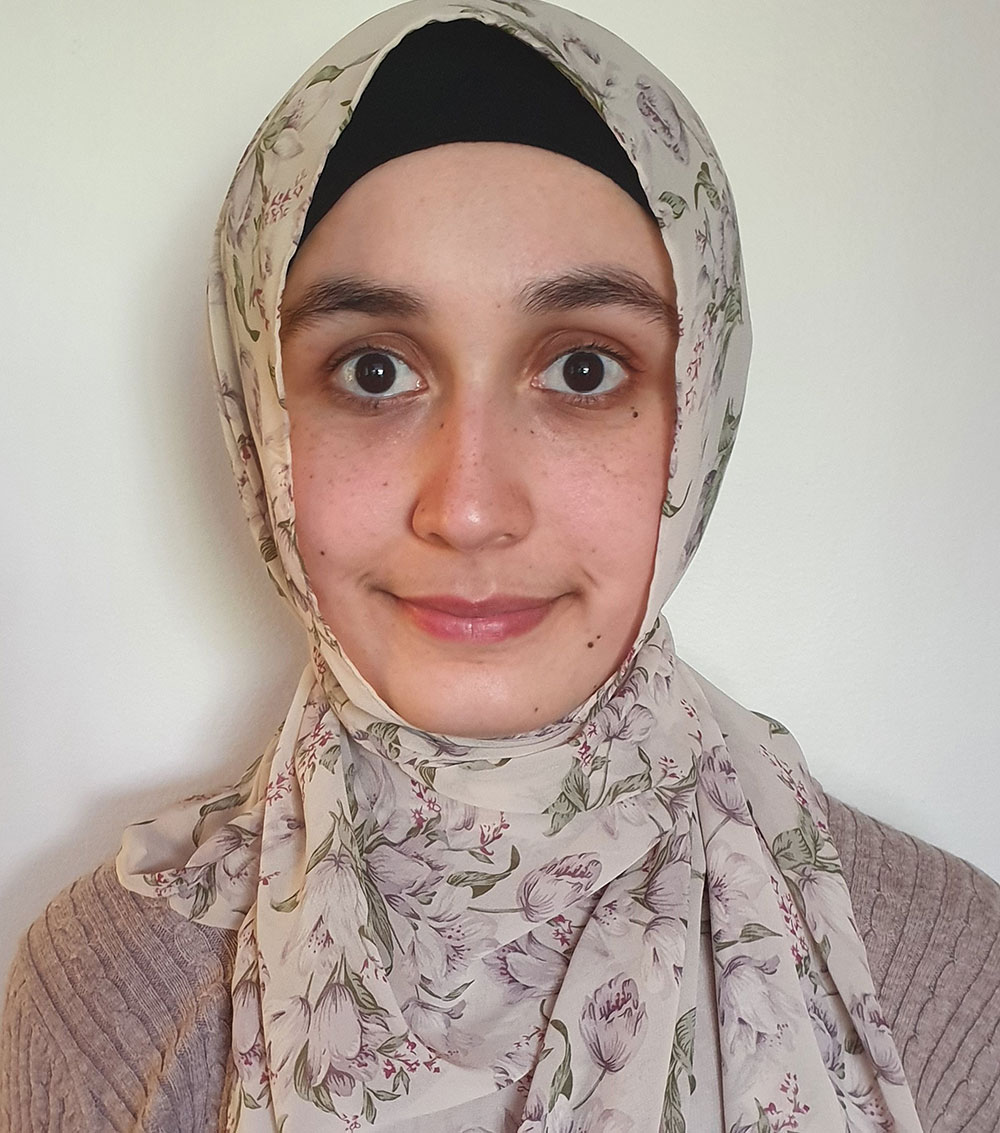Supporting patients starts with listening more.
Wherever pharmacists practise, there are patients with anxiety – patients who are managing well, patients who are managing not so well, and patients in crisis.
Mental Health Australia Chief Executive Officer Leanne Beagley says one of the best ways pharmacists can support patients is by recognising that anxiety often reveals itself in physical symptoms, such as difficulty sleeping, nausea and diarrhoea.
‘There’s a real interplay between people’s anxiety and how [the symptoms] are expressed in their body, and community pharmacists are in a great position to recognise that physical symptoms might have a mental health component and to encourage [people] to see a GP,’ she says. ‘It’s about understanding that physical symptoms might have an underlying mental health cause, and asking questions or encouraging people to think about that.’
Listening more is crucial to pick up on these signs, open up conversations and provide appropriate support.
AP spoke with two pharmacists who took the time to listen more.
 Duha Nur Gide
Duha Nur Gide
Community Pharmacist and University of Sydney researcher, Sydney, NSW
Lessons from MHFA training
Mental Health First Aid (MHFA) training is extremely useful in identifying signs and symptoms of different mental illnesses, including anxiety, and the different ways that it may present, says Ms Gide.
‘It also explores the different types of anxiety, such as post-traumatic stress disorder (PTSD), panic disorder and social anxiety disorder. Additionally, and perhaps most importantly, it teaches pharmacists how to appropriately approach patients with anxiety and provides us with the knowledge and skill set to effectively offer support.’
The role-play for pharmacists, she says, is beneficial in gaining practical experience and increased confidence when interacting with patients experiencing anxiety, which optimises the outcome.
Tell-tale prescription presentations that may indicate underlying – or overt – anxiety, Ms Gide says, can include:
- sleeping tablets
- anti-reflux or anti-nausea medicine
- muscle aches and pains – a script for pain medicine may be an indicator
- propranolol, which may be used to treat physical symptoms of anxiety
- requests for products that may help improve memory and concentration
- generally, people with anxiety may need more reassurance, so they could have more questions and concerns about their medicines, which pharmacists may notice during counselling.
Most patients experiencing anxiety would be referred to their GP, who may then refer the patient to a psychologist or psychiatrist, for instance.
Patients with anxiety are also encouraged to seek support from other people, such as friends and family they trust, according to Ms Gide.
‘There are also often local mental health services that can help people with anxiety, so this is another referral option.’
 Louise Edwards BPharm(Hons), BA, MPS
Louise Edwards BPharm(Hons), BA, MPS
Principal Master Mental Health
First Aid Instructor, Perth, WA
Case 1
Anxiety and panic attack
Flustered, teary and struggling to enunciate her problem, Belinda* rushes into a busy street-front pharmacy, flapping her hands in front of her face as if to cool herself down.
‘I think I’m having a panic attack,’ the 20-something blurts out, while being moved quickly and calmly by Ms Edwards, the pharmacist in charge, to a nearby counselling room.
Belinda is asked if this has happened before. Yes, she replies, although it’s been a while. Due to meet estranged family members, she tells of suddenly becoming anxious and feeling hot, sweaty and shaky, and like she can’t breathe properly.
Ms Edwards sits with Belinda as she overtly slows her breathing, while a pharmacy colleague fetches cold water and jellybeans.
‘At all times, I was monitoring for physical alarms, such as loss of consciousness or Belinda expressing concerns with physical symptoms,’ Ms Edwards later recalls. Seeking help early, and starting previously learned breathing activity, prevented the attack from escalating, she believes.
After about 5 minutes with Belinda, Ms Edwards leaves her with a pharmacy assistant, clears some work in the busy dispensary, and asks for a print-out of the PSA ‘Anxiety’ Self Care Fact Card together with some ‘goodies’.
Not long after, Ms Edwards finds Belinda giggling with the pharmacy assistant. And while still somewhat red, Belinda feels ‘much better’ and apologises profusely, before wiping her face with the cold, wet paper towels provided for her.
Ms Edwards commends Belinda for ‘seeking help from us’ and presents her with the ‘Anxiety’ Self Care Fact Card. Belinda declines an offer for staff to take her to the nearby doctor and does not want anyone in the family to collect her.
She tells Ms Edwards of an imminent appointment with her GP for her oral contraceptive pill. ‘Although now,’ Ms Edwards later recalls, ‘she will discuss this episode to consider if she needs to return to psychology appointments, particularly as this family catch-up is likely to stir up anxiety.’
When presented with ‘our little goodies’ to help her feel better, ‘Belinda started tearing up with thanks’ again.
‘Belinda left about 10 minutes later with a fresh face and calmer disposition,’ Ms Edwards says, which was ‘a great experience for the PA to see how helping others really is personally rewarding – and she talked about it for weeks’.
Case 2
Methadone – Helen (pre-MHFA training)
Helen,* a regular methadone client, can be short with manners and appear defensive at times. A client for at least 6 months, she is on a larger dose of methadone and attends with her partner, who often appears intoxicated.
Helen presents alone one day with a prescription for diazepam 5 mg tds, to be collected every few days from the pharmacy. When she realises she will not be given the full supply, she becomes aggressive in tone and swears about how she is being distrusted.
‘At first, I was stern and clear regarding swearing and aggression and our contract relating to behaviour in the pharmacy,’ Ms Edwards later recalls.
While Helen rages that she will leave and find something else ‘to make her feel okay’, Ms Edwards notices she is tearing up.
‘I realised my attitude and approach were not leading to the best outcome, so I softened my demeanour and asked Helen if she wanted to step into a quieter area.’
Now in a quieter area, and out of breath from crying, Helen grabs Ms Edwards by the arm for support.
‘It was a rare show of vulnerability, so I talked softly and soothingly to make her feel comforted. It was clear that the façade we had seen for 6 months was hiding some significant anxiety.’
Helen explains that she is trying to avoid her often unkind partner, but her substance use problems and lack of family support have given her extreme anxiety about coping. Her GP has started her on a sample pack of sertraline before she returns in several days, and the diazepam is to help with her current extreme anxiety.
‘This person in front of me is suddenly more relatable,’ Ms Edwards recalls. ‘I understand why she presents the way she does. It shouldn’t have taken this show of emotion for me to change my thought processes regarding Helen, and I vow never again to make this mistake. I sit and chat with her while she calms.’
Helen is brought cold water and some jellybeans, and is made comfortable as she calms down with slow breathing.
And while there is a brief return to an embarrassed disengagement from Helen – manifested with no eye contact, fidgeting and mumbling – Ms Edwards talks her around (helped by some cool, wet paper towels and a ‘calm, caring tone’) expressing delight that Helen has trusted her with her personal information.
Helen responds well, particularly to Ms Edwards’s offer of local housing assistance and food provider numbers, as well as leaflets on anxiety.
‘Now that we have both had a good connection and I have really listened, Helen finds it much easier to understand the safety behind the limited supply,’ Ms Edwards says.
‘I work hard every visit to check in and make the staged supply interaction valuable for her. This not only reinforces our relationship, but also the benefits of medication supply.’
Case 3
Rescue Remedy – Maureen
One morning at the pharmacy, Maureen,* a young woman, asks Ms Edwards: ‘I’ve heard Rescue Remedy is good for nerves – do you have any?’
‘What kind of symptoms are you hoping to relieve?’ replies Ms Edwards. Helen lists ‘significant anxiety symptoms: not sleeping; emotional outbursts due to feeling anxious; an inability to stay on top of her university studies; disruption to function’, Ms Edwards recalls.
Ms Edwards tells her: ‘It sounds like you’re having a tough time at the moment, not being able to engage in all your usual activities.’
She tells Maureen there is no evidence that homeopathic preparations help with clinical anxiety, and that it appears some significant symptoms are interfering with her day-to-day life that need addressing with her doctor and perhaps warrant psychological intervention.
Maureen confides that this was a problem a few years back but that she had been helped by a good counsellor. Recently, however, she has moved, hasn’t had time to follow up, and doesn’t have a good GP.
‘We booked Maureen into a GP for a mental health plan and gave her Beyond Blue’s A Guide to what works for anxiety book, as well as PSA’s ‘Anxiety’ Self Care Fact Card,’ Ms Edwards says.
* Names are pseudonyms
Top tipsAlways recommend non-pharmacological intervention as first-line therapy Encourage patients to get a mental health plan, including booking double appointments. GPs require a double appointment for a mental health plan. Patients often need to return if a double is not booked – missed opportunities.
Empathise and validate to help alleviate stress consumers may be experiencing and allow them to feel like they are being heard. Having a non-judgmental attitude can help patients open up and feel more comfortable. Suggested phrases:
Listen if someone is expressing frustration, disengagement or agitation. Ask yourself if anxiety is underlying this. Step back, rethink your approach. When people are anxious, they may become defensive. If we really listen to their concerns, we may be able to reach a better outcome. NEVER say:
Source: Louise Edwards, Duha Nur Gide |
For PSA Self Care Cards, including on anxiety, visit psa.org.au/programs/self-care



 Professor Margie Danchin[/caption]
Professor Margie Danchin[/caption]

 Dr Peter Tenni[/caption]
Dr Peter Tenni[/caption]
 How should we deprescribe gabapentinoids, according to the Maudsley Deprescribing Guidelines[/caption]
How should we deprescribe gabapentinoids, according to the Maudsley Deprescribing Guidelines[/caption]



 Pharmacists have always prescribed, but they have the potential to prescribe much more
Pharmacists have always prescribed, but they have the potential to prescribe much more






